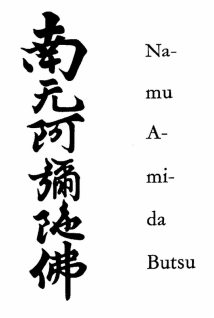The Four Noble Truths
The Four Noble Truth |
The Buddha gave his first sermon in Deer Park on the periphery of Benares in northeast India. The contents of this first sermon were the Four Noble Truths including the Eightfold Path. This formed the underpinning of the Buddhist teachings.
1. There is suffering — we all experience it All beings are subject to suffering. No one escapes it. Suffering is universal. 2. Suffering is caused — Ego is at its root The cause of suffering is ignorance, which creates an artificial ego. The ignorance of one’s self is the utmost ignorance. 3. The end of suffering is nirvana Ignorance, the fundamental cause of suffering, can be abrogated. 4. The path to nirvana, “enlightenment” is the Eightfold Path The way to circumvent ignorance is the Eightfold Path. The Eightfold Path The Buddhadharma is the realization of the oneness of all life. This dwells within our deepest consciousness. Buddha showed us the Eightfold Path so that we could realize this; i.e., make it real in our lives. The word usually translated as “right” does not mean “correct”. It conveys more the sense of “appropriate”, “holistic”, “complete”, or even “harmonious”. 1. RIGHT VIEW Right views means to keep free from prejudice, superstition, and delusion . . . and to see correctly the true nature of life. This is done without assumption or preconception about the value or worth of another. 2. RIGHT THOUGHTS Right thoughts means to turn away from the hypocrisies of this world, particularly our own native culture, and to direct our minds toward truth and positive attitudes and action. 3. RIGHT CONDUCT Right conduct means to see that our deeds are peaceful, benevolent, compassionate, and pure . . . to live the teachings every day. This means not engage in our own petty views of right or wrong, fair and unfair, good or bad. 4. RIGHT SPEECH Right speech means to refrain from pointless and harmful talk . . . to speak kindly and courteously to all. This includes gossip, pointless speculation and nuanced speech meant to harm another. The absence of right speech is possibly the most often seen manifestation of the lack of practice and faith in the Buddhadharma. 5. RIGHT LIVELIHOOD Right livelihood means to earn our living in such a way as to entail no evil consequences. To actively seek that employment to which we can devote our complete enthusiasm and devotion or put another way, one ought to engage in a lifestyle that is in harmony with all sentient life.. 6. RIGHT EFFORT Right effort means to direct our efforts continually to the overcoming of ignorance and craving desires. This is easy to say but difficult for many. 7. RIGHT MINDFULNESS Right mindfulness means to cherish good and pure thoughts, for all that we say and do arises from our thoughts. 8. RIGHT MEDITATION Right meditation means to concentrate our will on the Buddha, his life and his teachings. |
